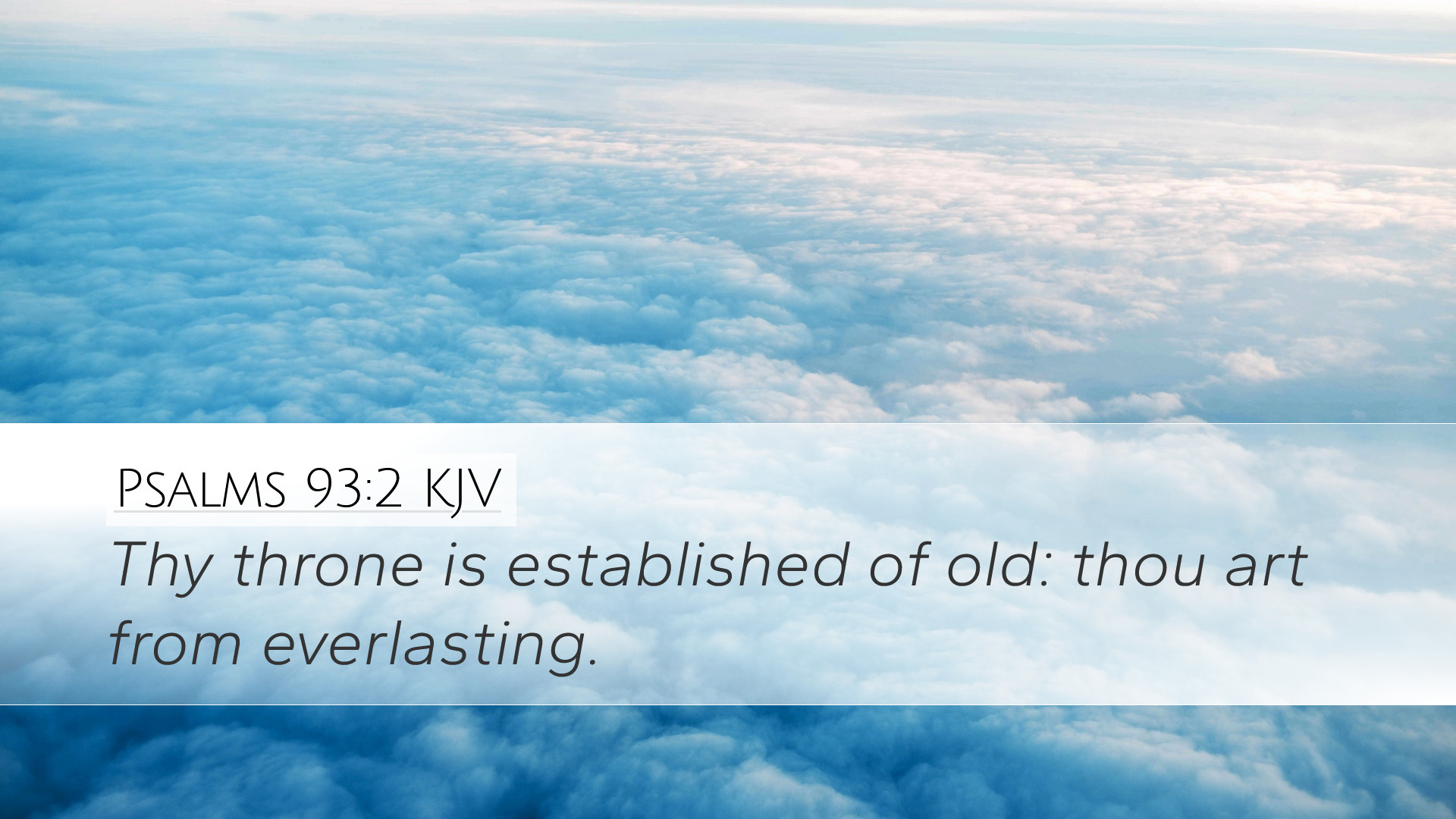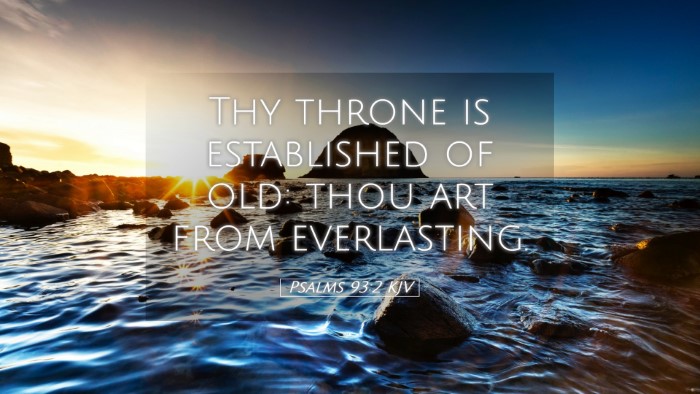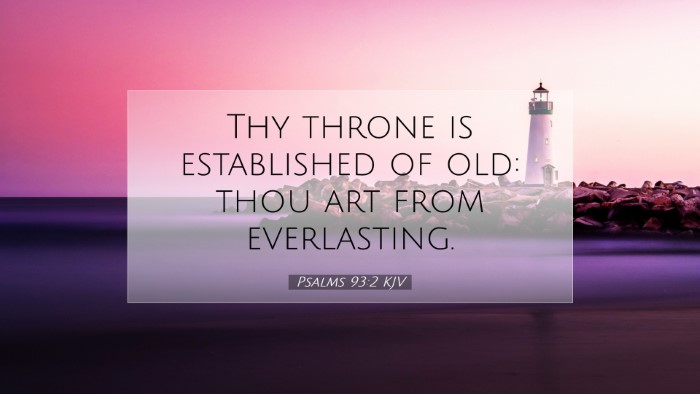Commentary on Psalm 93:2
Psalms 93:2: "Thy throne is established of old: thou art from everlasting."
This verse presents a profound declaration of God's sovereign rule and eternal existence. The imagery of God seated upon His throne conveys a sense of majesty and authority, transcending both time and creation itself.
1. The Establishment of God's Throne
The phrase "Thy throne is established of old" signifies not only the long-standing authority of God but also His unchanging nature. As Matthew Henry remarks, the establishment of God's throne is eternal and immutable, contrasting starkly with the fluctuating powers of earthly kings and kingdoms.
Albert Barnes adds that the throne of God symbolizes His governance over all creation. It has existed before time—uncreated, unerring, and unassailable. This provides believers with comfort and assurance that regardless of worldly circumstances, God’s sovereignty remains intact.
2. The Eternality of God
The second part, "thou art from everlasting," emphasizes God’s eternal nature. He is without beginning or end, continually reigning without interference or succession. Adam Clarke notes that God's existence is not bound by time; He inhabits eternity, a truth that gives weight to His plans and purposes.
Furthermore, this eternal aspect of God is fundamental for understanding His character. As Henry mentions, it assures believers of God’s faithfulness throughout all generations; His promises are as eternal as He is. This should inspire trust and reverence in those who seek to align their lives with His divine will.
3. Application of the Verse for Believers
- Confidence in Divine Providence: Knowing that God's throne is established allows believers to face trials with the assurance of God's control over all aspects of life.
- Endurance Through Trials: In moments of hardship, the eternal nature of God serves as a reminder that earthly struggles are temporary. Reflecting on God's everlasting throne can provide peace and resilience.
- Worship and Reverence: This verse calls for a response of worship. Recognizing God's sovereignty and eternal existence leads to a deeper appreciation of His holiness and majesty.
4. Historical Context and Relevance
The Psalms often reflect a response to historical and spiritual crises faced by Israel. This particular psalm, believed to be post-exilic, reflects a time when the people of Israel were reaffirming their faith in God’s sovereign rule after a period of chaos.
As Barnes indicates, the assurance of God’s eternal throne would bring hope to those who had witnessed political and social upheaval. Understanding that their God reigns supremely would instill confidence in their identity as His chosen people.
5. Comparative Analysis with Other Scripture
This theme of God's eternal kingship is echoed throughout Scripture. For instance:
- Isaiah 40:28: "The everlasting God, the LORD, the Creator of the ends of the earth." This verse amplifies the same truth — God's eternal nature is foundational to His role as Creator and sustainer.
- Revelation 1:8: "I am Alpha and Omega, the beginning and the ending, saith the Lord, which is, and which was, and which is to come, the Almighty." In this verse, the continuity of God's existence is universally proclaimed, reinforcing His omnificence.
6. Conclusion
Psalm 93:2 serves as a robust declaration of God's sovereign and eternal nature. For pastors, students, theologians, and Bible scholars, this verse invites a deeper contemplation of God’s immutability and sovereignty. As they study, they will find that the foundational truths presented encourage a robust faith in God’s plans—trusting that His throne remains steadfast through the ages, offering unwavering hope and assurance to His people.
This understanding not only informs our theological perspectives but also molds our daily lives as we navigate the complexities of this world, ensuring that our focus remains anchored in the One who rules eternally—our God, who is from everlasting to everlasting.


